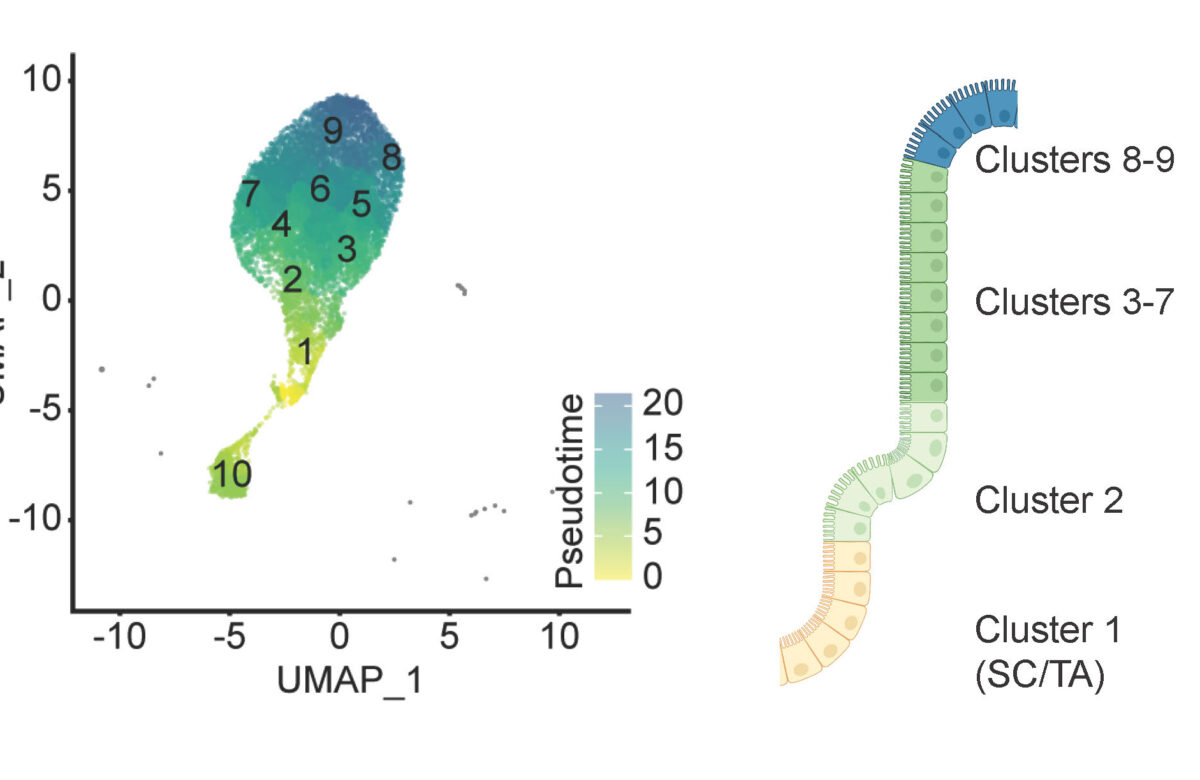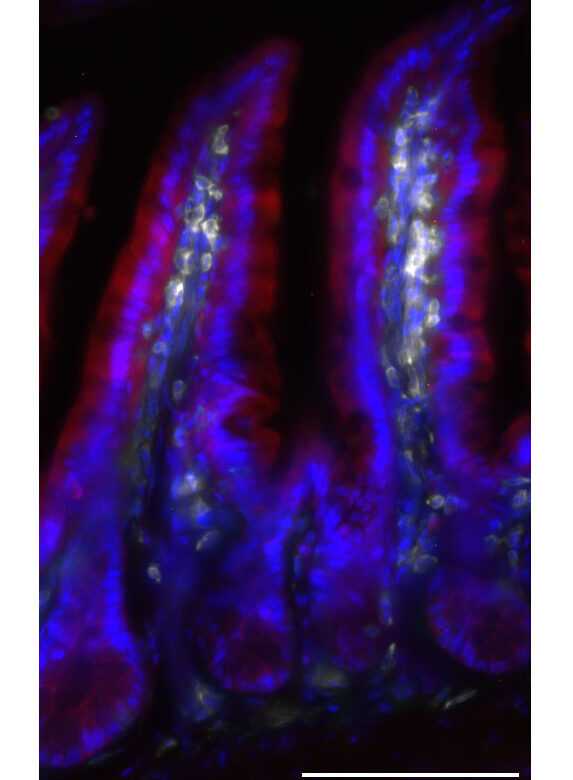
Looking for students or interns
Areas of expertise
Interferons and Mucosal Immunity , Cryptosporidium , Interferons , Study of Host-Pathogen Interactions , T cells
- Regular professor
Armand-Frappier Santé Biotechnologie Research Centre
531 des Prairies Blvd.
Laval, Quebec H7V 1B7
Research interests
Cryptosporidium spp. are Apicomplexan parasites that infect intestinal epithelial cells (IEC) and are a significant cause of diarrheal disease (cryptosporidiosis). In 2013, the Global Enterics Multicenter Study (GEMS) identified Cryptosporidium as second only to rotavirus as a cause of severe diarrhea and death in infancy in sub-Saharan Africa and Southern Asia. Symptoms last 1-2 weeks in immune-competent individuals; however, in individuals with suppressed T cell responses (e.g., organ transplant recipients or patients with acquired immunodeficiency syndrome [AIDS]), chronic infection can spread to the bile ducts and liver and become life-threatening. In addition, the anti-cryptosporidial drug Nitazoxanide is not approved in Canada and does not work in immunocompromised individuals, underscoring the need to better understand immune control of Cryptosporidium by IEC.
Previous studies have identified the crucial role of interferon-gamma (IFN-γ) in control of parasite replication and T cells in parasite clearance. My recent studies used single-cell RNA-sequencing, microscopy, and flow cytometry to understand the impact of IFN-γ and Cryptosporidium infection on IEC and the dynamics of parasite control following IFN-γ stimulation. In particular, we showed that IFN-γ acts on uninfected IEC to limit parasite dissemination, in part because IEC exhibit a delayed responsiveness to IFN-γ relative to immune cells.
Research in my lab will combine these techniques with intestinal organoids, 3D cultures that mimic the natural conditions of IEC and enable studies of primary IEC. We will use these tools to study the interplay between types I, II, and III IFN during infection with Cryptosporidium and how these signals are regulated by intestinal epithelial cells.
Training openings for students or interns
Master
Doctorate
Undergraduate
Master's
PhD
Master
Doctorate
Undergraduate
Master's
PhD
Publications
Selected Publications
Pardy RD, Walzer KA, Wallbank BA, Byerly JH, O’Dea KM, Cohn IS, Haskins BE, Roncaioli JL, Smith EJ, Buenconsejo GY, Striepen B and CA Hunter. 2024. Analysis of intestinal epithelial cell responses to Cryptosporidium highlights the temporal effects of IFN-γ on parasite restriction. PLOS Pathogens 20(5): e1011820.
Pardy RD*, Wallbank BA*, Striepen B and CA Hunter. 2023. Immunity to Cryptosporidium: insights into principles of enteric immune responses. Nature Reviews Immunology 24(2): 142-55.
* These authors contributed equally to this work
Haskins BE, Gullicksrud JA, Wallbank BA, Dumaine JE, Guerin A, Cohn IS, O’Dea KM, Pardy RD, Merolle MI, Shallberg LA, Hunter EN, Byerly JH, Smith EJ, Buenconsejo GY, McLeod BI, Christian DA, Striepen B and CA Hunter. 2024. Dendritic cell-mediated responses to secreted Cryptosporidium effectors are required for parasite-specific CD8 (+) T cell responses. In Press, Mucosal Immunology.
Gibson AR, Sateriale A, Dumaine JE, Engiles JB, Pardy R, Gullicksrud JA, O’Dea K, Doench JG, Beiting DP, Hunter CA and B Striepen. 2022. A genetic screen identifies a protective type III interferon response to Cryptosporidium that requires TLR3 dependent recognition. PLOS Pathogens 18(5): e1010003.
Pardy RD, Gentile ME, King IL and MJ Richer. 2022. An Epidemic Zika Virus Isolate Drives Enhanced T Follicular Helper Cell and B Cell-Mediated Immunity. Journal of Immunology 208(7):1719-1728.
Pardy RD, Valbon SF, Cordeiro B, Krawczyk CM and MJ Richer. 2021. An Epidemic Zika Virus Isolate Suppresses Antiviral Immunity by Disrupting Antigen Presentation Pathways. Nature Communications 12(1): 4051.


